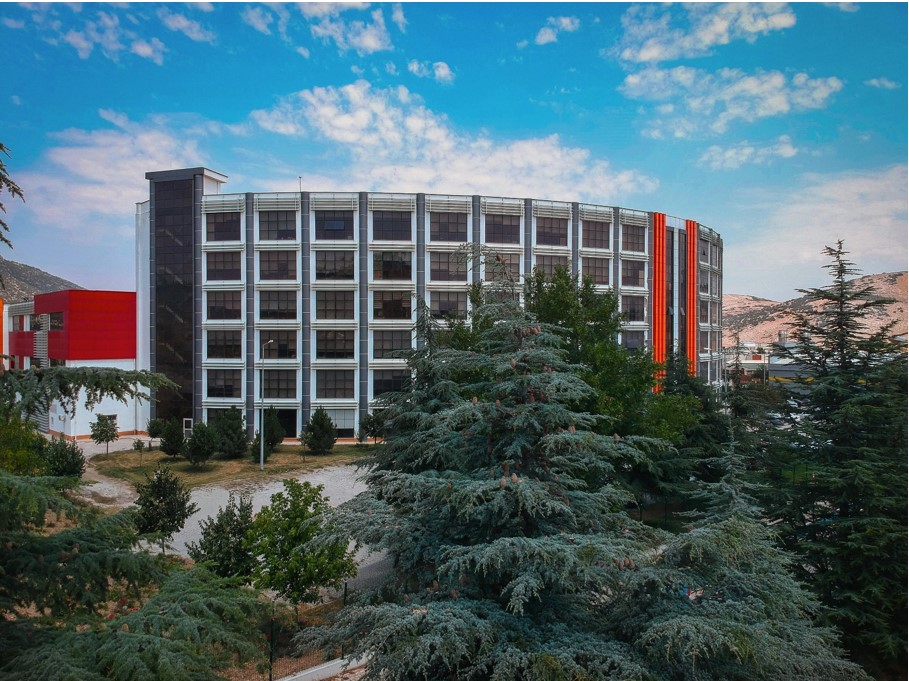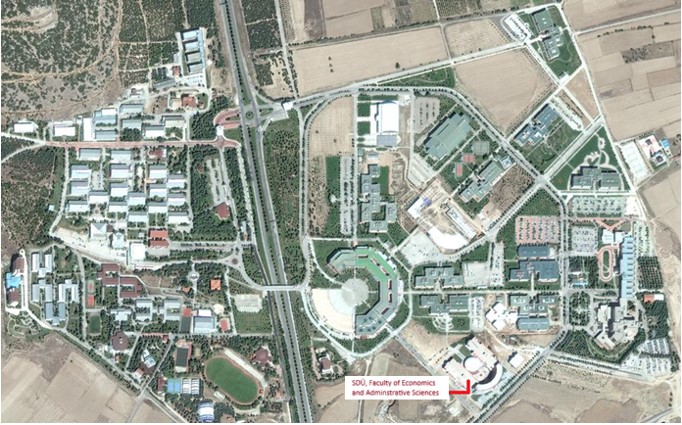About Faculty

With its academic and intellectual depth, commitment to practice-based education, strong academic staff, high level of institutional and societal contribution, leadership in student projects, and advanced physical infrastructure, the Faculty of Economics and Administrative Sciences at Süleyman Demirel University was established under Law No. 3837, dated July 11, 1992. Initially located on the Western Campus in the 1990s, the faculty moved in 2001 to a new building on the Eastern Campus, one of the first structures completed there. The faculty operated in this building for 15 years. As of 2016, the faculty has been continuing its activities in a newer building also located on the Eastern Campus.

At its establishment, the faculty began its educational activities with the Departments of Business Administration, Economics, and Public Administration. Following these initial departments, the Department of Public Finance was established in 1998; the Departments of Labour Economics and Industrial Relations, Econometrics, and Social Work in 2006; the Department of Health Management in 2009; the Department of International Relations in 2011; the Department of Tourism Management in 2012; the Department of Finance and Banking in 2014; the Department of Human Resources Management in 2017; and finally, the Department of International Trade and Logistics in 2020. Additionally, the name of the Public Administration Department was changed to Political Science and Public Administration in 2015. Today, with its thirteen departments, the faculty is among the leading faculties in its field. Graduate education (master’s and doctoral programs) is also available in eleven of the thirteen departments through the Social Sciences Institute.

The faculty possesses a strong physical infrastructure and technical equipment to support educational activities. The faculty has 68 lecture halls, all arranged in amphitheater style, five fully equipped computer laboratories, and two conference halls with a seating capacity of 700 people each. Additionally, there are six meeting rooms, as well as productive study areas for students, such as reading corners, silent classrooms, and public-private partnership offices (e.g., Business Communication Office).
Within the inspiring university vision of Süleyman Demirel University, the faculty adopts an approach that is learning-oriented, supports lifelong and new forms of learning for both students and educators, values digital transformation, continuously improves the quality and quantity of scientific research and publication activities, responds to regional and national needs, creates an ecosystem contributing to the region’s health, culture, and sports activities, emphasizes environmental sustainability, and undertakes social responsibility projects aimed at disadvantaged groups.
Internalizing quality and increasing efficiency and effectiveness are among the fundamental values. Süleyman Demirel University’s status as a campus university, Isparta’s identity as a university city, and its position as one of Turkey’s leading cities in terms of quality of life indicators all add significant value to the faculty.

Currently, Süleyman Demirel University Faculty of Economics and Administrative Sciences is an academic unit that combines both quality and quantity in terms of its advanced physical facilities, competent academic staff, qualified academic publication and project culture, and student quotas. In this context, its vision is to be "the best faculty in the region in its field, a leading faculty in the country, and a respected faculty worldwide," and to sustain this status. Its mission is to be "a faculty that provides quality education, contributes through effective research and qualified publications, produces solutions, proposes ideas, and implements them." The faculty upholds these values with nearly 1,000 new student quotas, over 6,000 undergraduate students, approximately 25,000 alumni, and about 200 academic staff.
The faculty’s primary goal is to educate graduates who are experts in their fields, nationally and internationally needed, inquisitive, analytical thinkers, open to new ideas and self-improvement, critical thinkers, and effective communicators. The faculty contributes to the economic, political, and social development of the region and the country, with the responsibility of operating within the strongest higher education institution in its region. In this regard, as an extension of over thirty years of experience and knowledge, it has become a distinguished educational and research institution and stakeholder recognized at local, national, and international levels.
Up-to-date information, announcements, and news about the faculty are available on its official website and institutional social media accounts.

SDÜ, FEAS SDÜ, FEAS SDÜ, FEAS SDÜ, FEAS
Web Page Instagram Account Linkedin Account Graduates’ Group
iibf.sdu.edu.tr @iibf_sdu https://linkedin.com/in/sduiibf/
Previous FEAS Building
